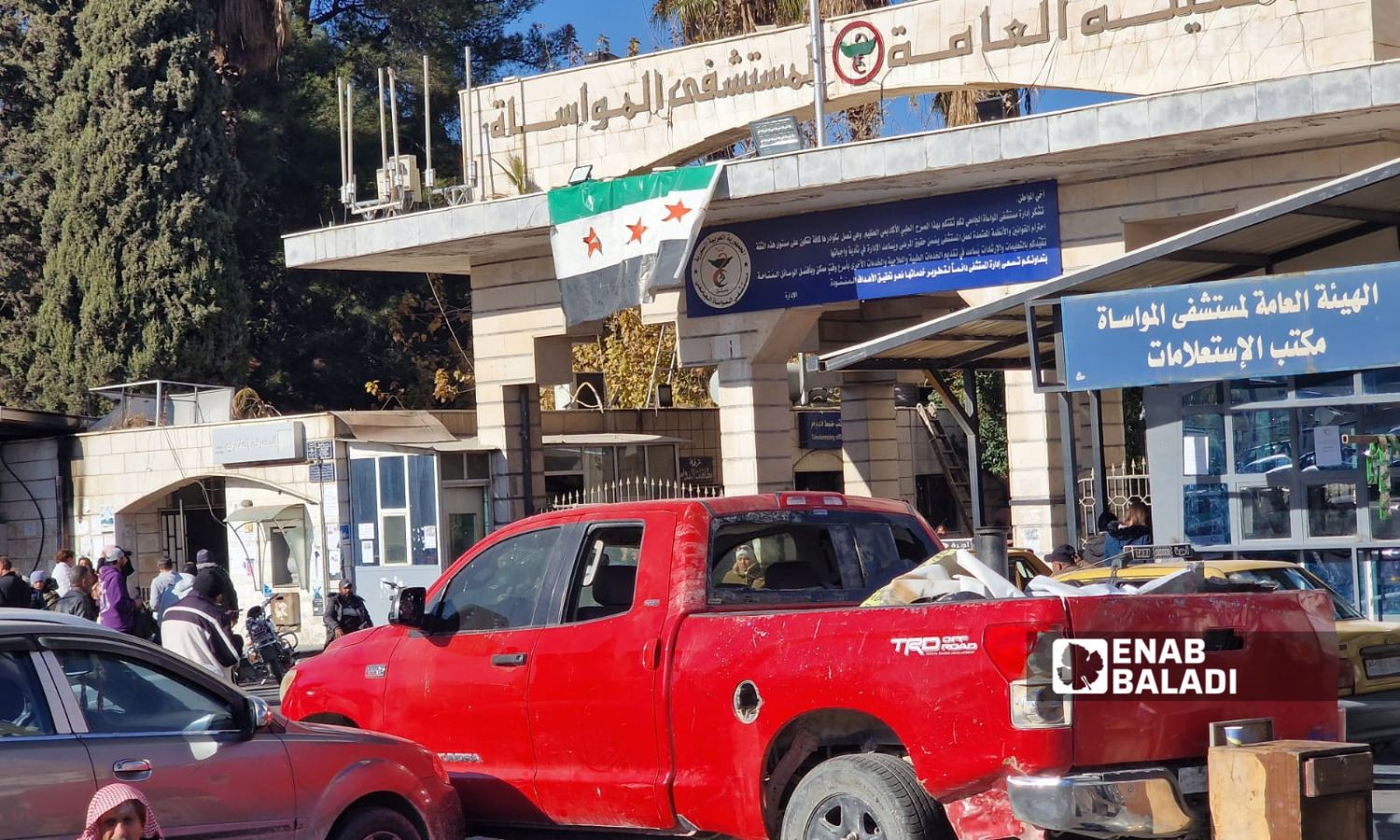



Damascus – Anas al-Khouli
The collapse of the Syrian regime and Bashar al-Assad’s escape to Russia have created new challenges for health institutions and hospitals, which were already suffering from shortages of medical supplies, medicines, and logistical issues such as electricity, fuel, transportation, and feeding patients and on-call medical staff.
Since December 8 of this year, securing medical supplies has become a continuous challenge for medical staff, who have sought alternative solutions to maintain the provision of medical services amid the harsh conditions the country is experiencing.
Dr. Hussam Hadid, the Deputy Director of al-Mouwasat Hospital for Administrative Affairs, told Enab Baladi that the hospital is one of the largest in Syria, with 630 beds for care and 50 intensive care beds, and it has all medical specialties, except for some specialized fields that are available in private academic hospitals, such as pediatrics.
The doctor explained that the hospital administration declared a state of emergency and is committed to providing medical services; it has not closed during any previous circumstances but has focused on emergency cases and rapid responses due to the closure of private hospitals and many medical centers.
According to Dr. Hadid, the hospital staff performed 50 urgent surgeries on the day the regime fell, December 8, and 20 surgeries the following day, noting that al-Mouwasat Hospital received 500 patients during the first week of that date.
He mentioned that the medical staff at the hospital did not stop working, and 90% of the administrative staff and 60% of the nursing staff remained on constant alert to provide services.
Al-Mouwasat Hospital and government hospitals rely on the central bank and the ministries of health and higher education for their supplies.
They had already suffered from a severe shortage of medical supplies during the regime of the ousted president, and the intensity of the shortage increased after its fall, pushing them to seek temporary alternatives, including relying on volunteer teams and charitable organizations.
Abdulrahman Akbik (28 years old), a fourth-year medical student and resident doctor at al-Mouwasat Hospital specializing in internal medicine, and founder of the Rapid Response team, told Enab Baladi that his volunteer team decided to commit to supporting al-Mouwasat Hospital to continue providing medical care.
He added that the team met with the hospital administration and learned about the needs that could be met, dividing the team into two sections: one to stay in the hospital to assist doctors in their work.
The second section communicates with government agencies, charitable and humanitarian organizations, and other volunteer teams to secure medicines and food for patients, on-call staff, and fuel.
Akbik mentioned that one of the biggest challenges faced by medical institutions during the early days after the regime’s fall was the transportation and securing the arrival of medical and nursing staff residing outside Damascus due to the very high costs of transport, leading to contact with the Sanad Team for Development to secure transportation for medical staff.
On December 10, the General Command appointed Mohammed al-Bashir, who was the head of the Syrian Salvation Government (SSG) in Idlib, to head a temporary government until March 2025.
Maher al-Sharaa was assigned to carry out the affairs of the Ministry of Health, stating that the healthcare sector is affected by the Western sanctions imposed on Syria, and he made promises to improve the sector in a few months.
Al-Sharaa mentioned that the ministry has received promises for a partial lifting of the ban on the healthcare sector’s capabilities, committing at the same time to establishing an infrastructure within three months that the sector can rely on.
He pointed out during his interview with Qatar’s Al-Jazeera channel that the Ministry of Health will work on benefiting from the Syrian competencies abroad, indicating that the ministry is in contact with Syrian medical competencies willing to return to the country.
He revealed that the ministry employs 82,000 personnel, needing fewer staff, disclosing that the healthcare sector is burdened with problems, the most notable of which is administrative corruption, as he previously announced an anticipated increase in salaries by 400% for healthcare workers, starting this month or next month.
if you think the article contain wrong information or you have additional details Send Correction